Controlled Internet: is the devil so scary how it is painted?
More recently, on September 14, Chinese citizens celebrated a significant date for their country. It was on this day in 1987 that the first e-mail from the Middle Kingdom was sent, containing a very symbolic text: "Through the Great Wall we can touch any corner of the world." Now, after 27 years, only a few of the more than 560 million Internet users in China have such an opportunity to “touch” all the charms of international communication. The reason for this is the Chinese state apparatus, which tightly controls the use of the global network within the country. China on the freedom of its citizens to access information via the Internet ranked among the world’s countries one of the lowest places, being on par with such overtly totalitarian countries like Cuba, Syria, Iran. Such disappointing conclusions were made in the published report “Freedom on the Net 2013”, created with the participation of the well-known non-profit organization “Freedom House” (the headquarters of the organization is located in the United States), which tracks trends in the political will of countries. So how is it that in a country of more than 1.5 billion people manage to censor the all-pervasive network?
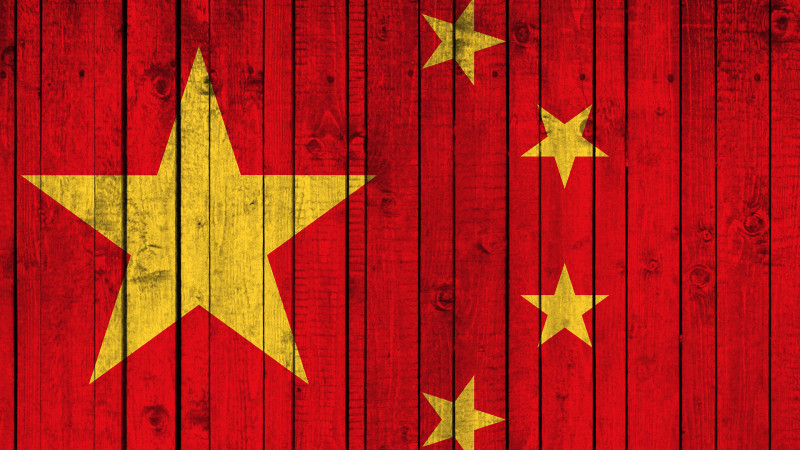
The Chinese authorities have at their disposal fairly effective tools for controlling content, which citizens of the country have access to on their web pages - “The Great Firewall,” so called by foreigners. The essence of the system that has been in effect since the late 90s is to restrict the access of the PRC population to foreign sites. On its basis, in 1998, the Ministry of Public Security launched a new project, a set of control measures for the Golden Shield network. This system was already more widely targeted at users within the country. At the level of individual ministries and local territorial administrations, they often also have their own network monitoring systems.
')
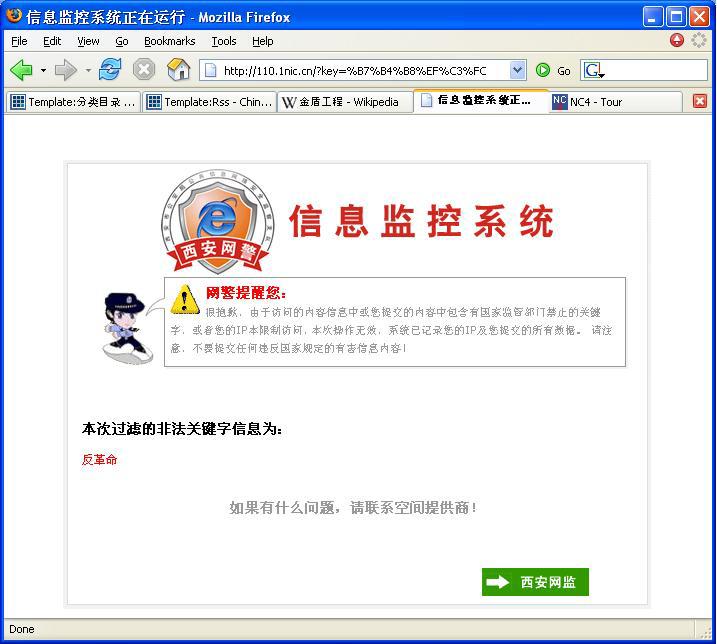
The history of blocking the world Internet resources by the PRC services dates back to the blocking of the Voice of America websites, human rights organizations and a number of world-famous newspapers. Over time, the technical level of censorship systems grew, and it became more sophisticated. Instead of blocking the whole site with the information that was of concern to the competent authorities, specific pages began to succumb to blocking, where this information was directly located. Filters can also temporarily restrict access to certain resources. This, for example, concerns the Google search engine. If the user enters into the Google search bar forbidden words, access to the search engine is blocked for 90 seconds, while the user has the opportunity to visit other network resources.
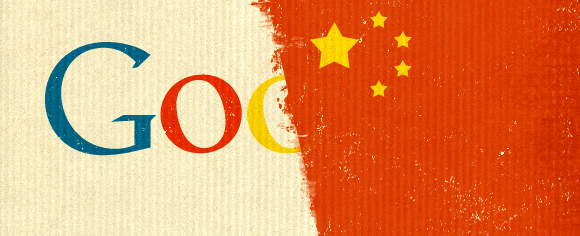
Providers in the PRC are subject to pressure from state control services on a regular basis, authorized employees of these bodies have free access to the entire existing infrastructure of companies, in turn, companies are periodically notified of new developments in the field of control over the dissemination of information. Having lists of forbidden keywords on hand, bloggers who are not loyal to the authorities, the Internet company of the heavenly kingdom often acts in advance and blocks all dubious content on their own, without waiting for trouble from the state. According to some estimates, the number of employees involved in both public and private companies in the information security sector of China is about 100,000.
1. All sorts of additional Google services: Google Docs, Google Drive, Picasa, Gmail and Google+. There is no particular reason for blocking these particular services, except for “the Internet came up with the CIA”.
2. Facebook. Blocking social network installed in 2008 and lasts to this day. The reason for this action many analysts reasonably consider the social unrest, which took place in 2007 in the Xinjiang Uygur Autonomous Region.
3. Youtube. Blocked in China since March 2009. The formal pretext was also absent. Experts say that the very form of a video message of a person defending his rights, representing his own vision unpleasant for the management of the PRC, could become the reason.
4. Twitter. Blocked since 2009, for reasons similar to the reasons for blocking a year earlier Facebook: the complexity of control and speed of dissemination of information among a huge number of citizens.
5. Wikipedia. With this site in heaven is a whole story. At the moment, after a series of vicissitudes that the resource has experienced, now it is available to users only partially, only the Chinese-language version of the site with the blocking of the Wikimedia image service. The result of the restriction of work was all the same pluralism of opinions on this site.
6. Blogspot. On the one hand, it belongs to the hated Google corporation, on the other hand, it is a free and simple platform for expressing their thoughts by ordinary citizens of the country.
7. Xhamster. This is a popular porn site in the world, one of many sites in the “18+” category that are banned in the state. Such actions are caused solely by concern, the paternal control of the party and the government over the moral character of society. And once the Chinese man, standing at the bench, think about the bodies bare.
8. Internet Movies Database (IMDB). Regarding the ban on this resource, there is also no official position. The reason may be the very fact of systematization and description of films that may interest ordinary people, films, many of which are banned by the Chinese authorities. It is worth at least remembering a film about the struggle of the Dalai Lama for free Tibet "When the Dragon Swallowed the Sun."
9. NYtimes. If the issue is not very clear with IMDB blocking, then censorship worked as expected with this resource. The publication widely covered the internal life in China, corruption, which affected the top of the country and specifically the former Prime Minister Wen Jiabao.
10. RedTube. Another pornographic portal not available in China. The reasons for its blocking are identical to the reasons for blocking Xhamster: "In communist China, there is no sex" (judging by the number of Chinese, reproduction by cuttings and budding is much more effective).

The criteria for censorship in China are somewhat thinner than most foreigners imagine. The essence of them is reduced to fairly simple and understandable postulates. Dissemination of any information should not:
• endanger social stability,
• threaten the unshakable authority of the ruling party.
At the same time, criticism of individual middle-level officials may well be tolerated, especially if it takes place as part of anti-corruption campaigns periodically conducted by the government. As for attacks on the upper administrative apparatus of the party organs, they continue to be rapidly suppressed. This encourages ordinary Chinese bloggers in the implementation of such criticism to hide their true name, to seek technical solutions, so as not to get in sight of the responsible comrades. Censorship works most strictly when there are calls for real protests (IRL, i.e. in real life) or just demonstrations through the network, even if it concerns various pro-government actions.
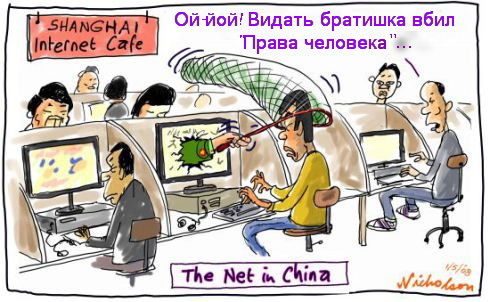
After analyzing the acuteness of the Chinese censorship reaction to stimuli, one can come to a simple conclusion: censorship in the country is primarily aimed at preventing the coordination of absolutely any political activity through the network. In cases where finely tuned censorship does not cope with the tasks set, access to the Internet in entire provinces can always be cut off in the shortest possible time, there have already been precedents for this. After the civil disobedience actions that took place in 2009 in one of the remote northwestern regions of the country - the Xinjiang Uygur Autonomous Region, access to the network was blocked for 10 months.
Since 2005, in some regions of the state, local authorities have begun to actively use paid commentators on information portals and social networks to form public opinion. Since 2007, these processes in the country have been taken under the state. control and gained unthinkable scale, foreshadowed by the report of the CCP Secretary-General Hu Jintao, in which he set the state the following tasks: “achieve excellence in public opinion on the Internet” and “actively use new technologies to strengthen positive propaganda”.
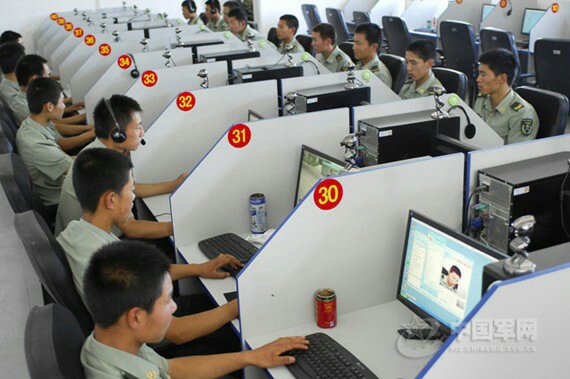
Bloggers in the service of the state among the people were called “Umaodan” (from the Chinese “50-kopek party members”), the exact number of such freelancers is extremely difficult to call. According to various estimates, it can be from tens to hundreds of thousands. But the difficulties are not caused by another figure - half of the yuan (a little more than 3 rubles), just as ordinary hackers get for fasting for the glory of a single party, a single homeland. It is this amount that has become a key element in the nickname of such people, given by the Chinese themselves.
Summarizing the situation with the freedom of the Internet in China, it becomes obvious that the state is trying to get the maximum benefit from the social and economic aspects of the network, at the same time completely limiting the opportunities for political activity of citizens. Such a realization of civil liberties within the country is becoming extremely desirable for many authoritarian and semi-authoritarian world regimes. There is no doubt that Sina Weibo's microblogging, the Chinese equivalent of Facebook, relieves social tensions in the country, giving society the opportunity to be heard, to expose the corrupt activities of local officials, to defend the right to eat quality products, to combat environmental pollution. But at the same time, the government has so far succeeded in restraining the possibilities of the Internet for the realization of political changes in the country. In fact, by providing its citizens with such a limited way of communication, presenting only the illusion of free debate, the empty hope of the ordinary citizen to be heard, the Internet may eventually become a factor in delaying the radical changes that occur in every rapidly developing society.
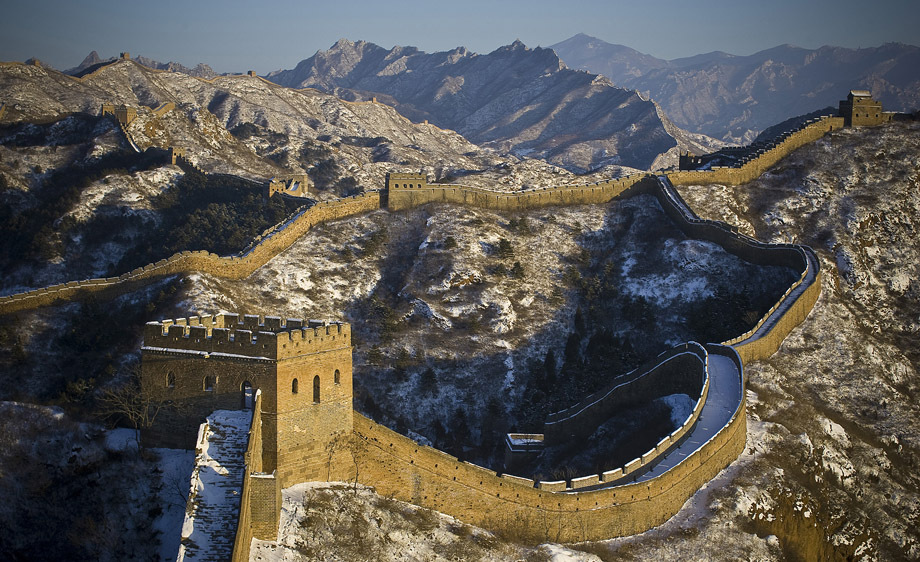

Golden shield of heaven
The Chinese authorities have at their disposal fairly effective tools for controlling content, which citizens of the country have access to on their web pages - “The Great Firewall,” so called by foreigners. The essence of the system that has been in effect since the late 90s is to restrict the access of the PRC population to foreign sites. On its basis, in 1998, the Ministry of Public Security launched a new project, a set of control measures for the Golden Shield network. This system was already more widely targeted at users within the country. At the level of individual ministries and local territorial administrations, they often also have their own network monitoring systems.
')

The history of blocking the world Internet resources by the PRC services dates back to the blocking of the Voice of America websites, human rights organizations and a number of world-famous newspapers. Over time, the technical level of censorship systems grew, and it became more sophisticated. Instead of blocking the whole site with the information that was of concern to the competent authorities, specific pages began to succumb to blocking, where this information was directly located. Filters can also temporarily restrict access to certain resources. This, for example, concerns the Google search engine. If the user enters into the Google search bar forbidden words, access to the search engine is blocked for 90 seconds, while the user has the opportunity to visit other network resources.

Providers in the PRC are subject to pressure from state control services on a regular basis, authorized employees of these bodies have free access to the entire existing infrastructure of companies, in turn, companies are periodically notified of new developments in the field of control over the dissemination of information. Having lists of forbidden keywords on hand, bloggers who are not loyal to the authorities, the Internet company of the heavenly kingdom often acts in advance and blocks all dubious content on their own, without waiting for trouble from the state. According to some estimates, the number of employees involved in both public and private companies in the information security sector of China is about 100,000.
Top ten most popular sites in the world, which are blocked in China
1. All sorts of additional Google services: Google Docs, Google Drive, Picasa, Gmail and Google+. There is no particular reason for blocking these particular services, except for “the Internet came up with the CIA”.
2. Facebook. Blocking social network installed in 2008 and lasts to this day. The reason for this action many analysts reasonably consider the social unrest, which took place in 2007 in the Xinjiang Uygur Autonomous Region.
3. Youtube. Blocked in China since March 2009. The formal pretext was also absent. Experts say that the very form of a video message of a person defending his rights, representing his own vision unpleasant for the management of the PRC, could become the reason.
4. Twitter. Blocked since 2009, for reasons similar to the reasons for blocking a year earlier Facebook: the complexity of control and speed of dissemination of information among a huge number of citizens.
5. Wikipedia. With this site in heaven is a whole story. At the moment, after a series of vicissitudes that the resource has experienced, now it is available to users only partially, only the Chinese-language version of the site with the blocking of the Wikimedia image service. The result of the restriction of work was all the same pluralism of opinions on this site.
6. Blogspot. On the one hand, it belongs to the hated Google corporation, on the other hand, it is a free and simple platform for expressing their thoughts by ordinary citizens of the country.
7. Xhamster. This is a popular porn site in the world, one of many sites in the “18+” category that are banned in the state. Such actions are caused solely by concern, the paternal control of the party and the government over the moral character of society. And once the Chinese man, standing at the bench, think about the bodies bare.
8. Internet Movies Database (IMDB). Regarding the ban on this resource, there is also no official position. The reason may be the very fact of systematization and description of films that may interest ordinary people, films, many of which are banned by the Chinese authorities. It is worth at least remembering a film about the struggle of the Dalai Lama for free Tibet "When the Dragon Swallowed the Sun."
9. NYtimes. If the issue is not very clear with IMDB blocking, then censorship worked as expected with this resource. The publication widely covered the internal life in China, corruption, which affected the top of the country and specifically the former Prime Minister Wen Jiabao.
10. RedTube. Another pornographic portal not available in China. The reasons for its blocking are identical to the reasons for blocking Xhamster: "In communist China, there is no sex" (judging by the number of Chinese, reproduction by cuttings and budding is much more effective).

Principles of censorship in the PRC
The criteria for censorship in China are somewhat thinner than most foreigners imagine. The essence of them is reduced to fairly simple and understandable postulates. Dissemination of any information should not:
• endanger social stability,
• threaten the unshakable authority of the ruling party.
At the same time, criticism of individual middle-level officials may well be tolerated, especially if it takes place as part of anti-corruption campaigns periodically conducted by the government. As for attacks on the upper administrative apparatus of the party organs, they continue to be rapidly suppressed. This encourages ordinary Chinese bloggers in the implementation of such criticism to hide their true name, to seek technical solutions, so as not to get in sight of the responsible comrades. Censorship works most strictly when there are calls for real protests (IRL, i.e. in real life) or just demonstrations through the network, even if it concerns various pro-government actions.

After analyzing the acuteness of the Chinese censorship reaction to stimuli, one can come to a simple conclusion: censorship in the country is primarily aimed at preventing the coordination of absolutely any political activity through the network. In cases where finely tuned censorship does not cope with the tasks set, access to the Internet in entire provinces can always be cut off in the shortest possible time, there have already been precedents for this. After the civil disobedience actions that took place in 2009 in one of the remote northwestern regions of the country - the Xinjiang Uygur Autonomous Region, access to the network was blocked for 10 months.
Umaodan - "50 kopek communists"
Since 2005, in some regions of the state, local authorities have begun to actively use paid commentators on information portals and social networks to form public opinion. Since 2007, these processes in the country have been taken under the state. control and gained unthinkable scale, foreshadowed by the report of the CCP Secretary-General Hu Jintao, in which he set the state the following tasks: “achieve excellence in public opinion on the Internet” and “actively use new technologies to strengthen positive propaganda”.

Bloggers in the service of the state among the people were called “Umaodan” (from the Chinese “50-kopek party members”), the exact number of such freelancers is extremely difficult to call. According to various estimates, it can be from tens to hundreds of thousands. But the difficulties are not caused by another figure - half of the yuan (a little more than 3 rubles), just as ordinary hackers get for fasting for the glory of a single party, a single homeland. It is this amount that has become a key element in the nickname of such people, given by the Chinese themselves.
An example to follow?
Summarizing the situation with the freedom of the Internet in China, it becomes obvious that the state is trying to get the maximum benefit from the social and economic aspects of the network, at the same time completely limiting the opportunities for political activity of citizens. Such a realization of civil liberties within the country is becoming extremely desirable for many authoritarian and semi-authoritarian world regimes. There is no doubt that Sina Weibo's microblogging, the Chinese equivalent of Facebook, relieves social tensions in the country, giving society the opportunity to be heard, to expose the corrupt activities of local officials, to defend the right to eat quality products, to combat environmental pollution. But at the same time, the government has so far succeeded in restraining the possibilities of the Internet for the realization of political changes in the country. In fact, by providing its citizens with such a limited way of communication, presenting only the illusion of free debate, the empty hope of the ordinary citizen to be heard, the Internet may eventually become a factor in delaying the radical changes that occur in every rapidly developing society.

Source: https://habr.com/ru/post/238127/
All Articles